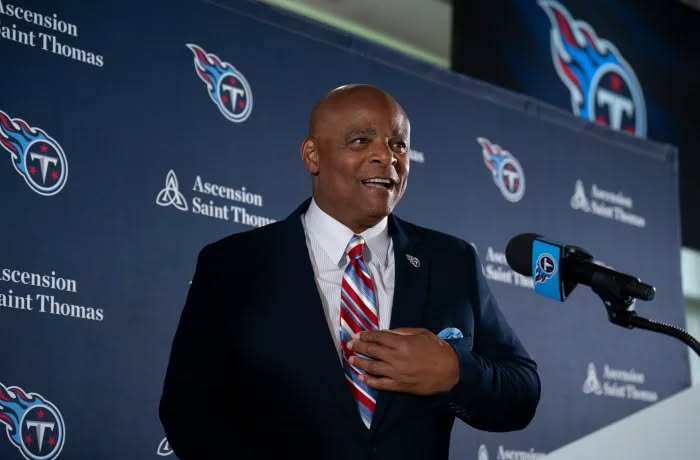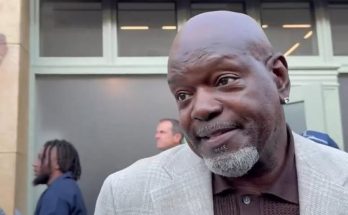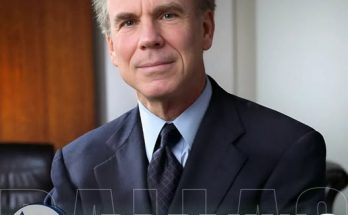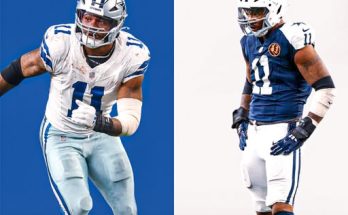As one of the most respected pioneers in professional football, Warren Moon has never been one to remain on the sidelines when change is needed. The Pro Football Hall of Fame quarterback—who broke racial barriers in both the CFL and NFL—recently delivered a bold message that has the football world buzzing: a new era is upon us, and he’s ready to help lead the charge.
Speaking at a leadership symposium in Los Angeles last week, Moon hinted at a sweeping movement within the sport, calling for innovation, equity, and a reimagining of football’s future from grassroots to the professional level. His comments, which have since gone viral, suggest that the man once known for his pinpoint passes is now throwing the biggest pass of his post-playing career: one aimed at transforming the very foundation of the game.
“We Need to Think Bigger”
Warren Moon, now 68, stood in front of a packed auditorium filled with coaches, athletes, media figures, and football executives when he made his announcement. He wasn’t promoting a memoir, launching a product line, or aligning with a media network. Instead, he spoke with the clarity of someone who knows the game’s past and sees where it must go.
“This isn’t just about football,” Moon said. “It’s about the lives it touches. The game needs to evolve. Not just on the field, but off it—in how we develop players, how we support them, how we open doors for people who have been waiting too long to walk through them.”
Moon, who spent six seasons in the CFL before dominating in the NFL for 17 years, was the first Black quarterback inducted into the Pro Football Hall of Fame in 2006. He has long been a symbol of perseverance and excellence. Now, his message is resonating not only with young players but with decision-makers at every level of the game.
A New Platform for Change
Sources close to Moon suggest that his remarks are part of a broader initiative: a forthcoming platform designed to amplify voices in football and to promote opportunities for underserved communities.
The project, tentatively called “The Next Era Project”, will focus on four pillars:
- Youth Football Access and Equity – Bringing quality training, mentorship, and resources to low-income communities.
- Quarterback Development for Minorities – Creating new pipelines for Black quarterbacks, a position where biases have historically limited opportunities.
- Mental Health Advocacy for Players – Offering resources and support systems for athletes at all levels.
- Tech-Forward Innovation in Training – Integrating wearable tech, AI-driven performance tools, and virtual reality into youth and high school football.
Moon has reportedly been in discussions with several NFL teams, as well as tech companies and nonprofits, to lay the groundwork for partnerships. Though the project has yet to formally launch, buzz is building fast, and Moon’s speech in L.A. has only added fuel to the fire.
“If we want to see a better game in 10 years, we need to start planting those seeds today,” Moon said.
The Legacy of Warren Moon
To understand the weight of Moon’s current influence, it’s important to reflect on his journey.
After going undrafted in 1978—despite a Rose Bowl MVP performance for the University of Washington—Moon went to the CFL, where he led the Edmonton Eskimos to five consecutive Grey Cup victories. He later joined the Houston Oilers and became one of the most prolific passers in NFL history. His career stats include over 49,000 passing yards and 291 touchdowns.
More importantly, Moon helped break racial stereotypes about the quarterback position. At a time when Black quarterbacks were often overlooked or converted to other positions, Moon forced the NFL to reckon with its biases.
Now, nearly two decades after his retirement, Moon continues to push boundaries.
Inspiring the Next Generation
Following his recent remarks, Moon was immediately praised by a variety of current and former players, including Russell Wilson, Patrick Mahomes, and Lamar Jackson—all of whom have benefited from the doors Moon helped open.
“Warren Moon made my career possible,” Mahomes said in a recent social media post. “He made people believe that a Black quarterback could dominate with his mind, his arm, and his leadership. Whatever he’s working on next, I’m in.”
Moon’s emphasis on developing young quarterbacks from diverse backgrounds strikes a particular chord in today’s NFL, where nearly one-third of teams are led by Black quarterbacks. Still, the path remains challenging at the youth and collegiate levels, where outdated stereotypes and unequal access to elite training persist.
By focusing on these areas, Moon hopes to build sustainable change—not just highlight individual success stories, but create systems that ensure many more to come.
Taking Football Into the Future
In addition to his equity-driven goals, Moon also addressed how the game itself must evolve to remain relevant in a digital age. He spoke about the integration of data analytics, personalized health metrics, and immersive tech to help athletes improve without overexertion.
Moon emphasized that today’s youth consume sports differently—from TikTok highlights to Twitch streams—and that football must embrace this digital-native generation.
“We can’t expect kids to train like it’s 1985 when they live in 2025,” Moon said. “They want feedback, community, and engagement—and we can give it to them through the right technology.”
He reportedly plans to partner with companies in the performance analytics space to develop platforms that not only enhance training but also educate players on injury prevention, cognitive development, and mental resilience.
This futuristic approach to football is not just about producing NFL stars. It’s about creating healthy, balanced individuals who can thrive on and off the field.
Pushback and Opportunity
As with any bold vision, Moon’s ideas have been met with some skepticism.
Critics argue that too much focus on tech and equity may dilute football’s traditional identity, or that the game is evolving too rapidly for its own good. But Moon isn’t phased.
“If you love football,” he said, “you want it to grow. You want it to be better for the next generation. That’s not soft. That’s responsibility.”
Already, several college programs have expressed interest in joining the Next Era Project’s pilot efforts. High schools in Texas, California, and Georgia are reportedly lining up to take part in the early stages, especially in communities that have historically lacked funding or visibility.
Moon has also hinted at creating a leadership council composed of former players, current coaches, and business innovators to ensure the project is inclusive and forward-thinking.
A Moment, or a Movement?
Only time will tell whether Warren Moon’s ambitious efforts will mark a true turning point in the sport’s evolution. But what’s clear is that he’s not doing it for headlines.
Those close to him say he’s spent years preparing for this phase of his career—one that combines his knowledge of the game with his desire to uplift others.
“Football gave me everything,” Moon said. “It’s my turn to give back, and to help shape what comes next.”
Whether through grassroots quarterback camps, mental health support initiatives, or tech-powered player development, Moon’s message is unmistakable: the future of football must be smarter, fairer, and more inclusive.
And if his legacy on the field is any indication, when Warren Moon sets his sights on something, history tends to follow.



